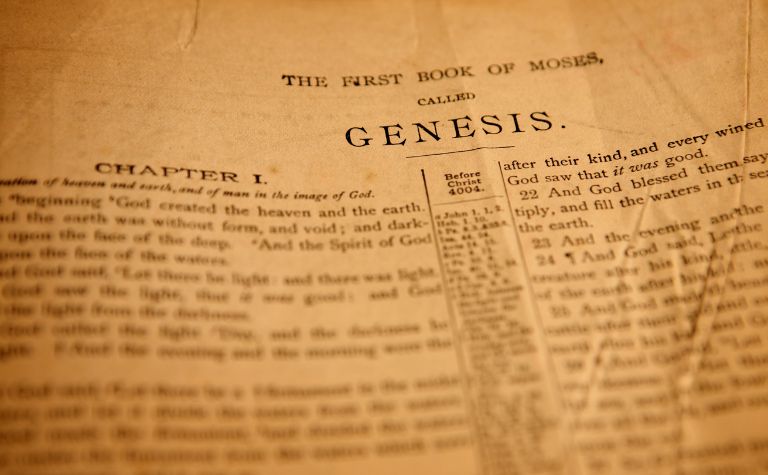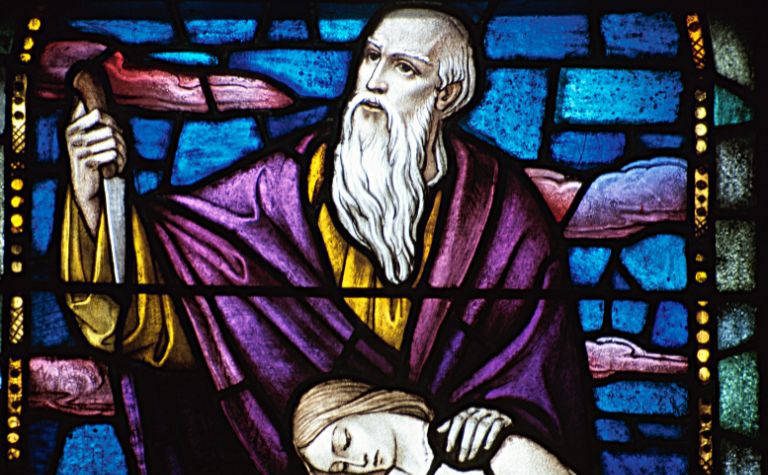Abraham is a central figure in the book of Genesis, whose legacy extends throughout the Old and New Testaments. Bible readers know him for the promises God gave him; for nearly sacrificing his son, Isaac; and for his faith in God. And, because of his importance, people also want to know about his family.
Abraham had three wives, Sarah, Hagar, and Keturah. Genesis features Sarah more prominently than the other two because she was Abraham’s first wife and gave birth to Isaac, the child who inherited God’s promises. Hagar gave birth to Ishmael. Keturah gave him six more sons.
How did Sarah seek to overcome her barrenness before she had Isaac? How did her plan backfire? How did Abraham and Sarah react when God told them they would have a son? Does the New Testament refer to Sarah positively or negatively? Why do scholars debate if Keturah was Abraham’s wife or his concubine? Keep reading to learn the answers to these questions and others.
Also, to understand Abraham, knowing the beginning and end of his life is essential. Discover how old Abraham was when he died for more insight.

The Three Wives of Abraham: Sarah, Hagar, and Keturah
Abraham is the main character in Genesis 11:10-25:11. Genesis and the rest of the Bible mention him outside this section; nevertheless, his narrative, which other books, passages, and verses allude to, is recorded at the beginning of the story of the nation of Israel in Genesis, chapters 12-50.
Sarah, Abraham’s first wife, is a major character in his narrative. She is with him when God calls him to the Promised Land (Gen. 12:5). Genesis devotes an entire chapter to the story of Sarah’s death and burial, which illustrates her importance. In contrast, Genesis only briefly mentions Hagar and Keturah.
Sarah is mentioned throughout Genesis 11-25. Genesis mentions Hagar ten times, mainly in chapters 16 and 21. She is called Abraham’s wife in Genesis 16:3. Keturah is only mentioned in Genesis 25:1 and 25:4.
The New Testament mentions Sarah by name multiple times (see below). It doesn’t mention Hagar by name though Paul alludes to her in Galatians 4:21-31. The New Testament doesn’t mention or allude to Keturah.
Genesis only mentions Keturah in a list that describes his descendants. The description reads, “Abraham took another wife, whose name was Keturah. She bore him Zimran, Jokshan, Medan, Midian, Ishbak, and Shuah” (Gen. 25:2, ESV).
Keturah probably had daughters with Abraham, but the passage doesn’t mention them, likely because they didn’t factor into inheritance customs. [1]
The list of names, which includes Abraham’s grandsons from the sons he had with Keturah, precedes the passage that tells of his death (Gen. 25:7-11). The obituary-like description says Abraham was buried “with Sarah his wife” and that God blessed Sarah’s only son, not any of Keturah’s six: “After the death of Abraham, God blessed Isaac his son” (Gen. 25:10-11).
Also, the world of Genesis is mysterious to many readers. For more clarification, get insight into when Abraham lived, including his estimated birth and death dates.

Sarah and Hagar: Wives of Abraham and Household Rivals
The Bible first mentions Sarah when Abraham married her (Gen. 11:29). They started their life together in the Ur of the Chaldeans, a region in southern Mesopotamia.
After leaving their homeland and before settling in the Promised Land, between the Mediterranean Sea and the Jordan River, the couple lived in Haran in northern Mesopotamia (Gen. 11:31). Sarah was 65 years old and childless when she and Abraham left Ur of the Chaldeans.
Hagar gives birth to Ishmael
Ten years later, still suffering from barrenness and desperately wanting a child, Sarah told Abraham to impregnate her Egyptian servant, Hagar. Genesis 16:2 reads, “Behold now, the Lord has prevented me from bearing children. Go in to my servant; it may be that I shall obtain children by her.”
Hagar soon gave birth to Ishmael. Unfortunately, Sarah’s sorrow grew more intense when Hagar treated her with contempt because of her barrenness (Gen. 16:5).
Sarah’s relationship with Ishmael wasn’t what she had envisioned, for his mother, Hagar, became her household rival. Moreover, Ishmael had an unruly and antisocial personality (Gen. 16:11-12).
Sarah gives birth to Isaac
The fact remained that God promised Abraham descendants (Gen. 12:1-3; 17:15-16). However, Abraham still doubted that he would ever have children (Gen. 17:17), as did Sarah (Gen. 18:12). Despite their ages, God fulfilled his promise when Sarah conceived and gave birth to Isaac at 90 years old.
Genesis 21:1-3 reads, “The Lord visited Sarah as he had said, and the Lord did to Sarah as he had promised. And Sarah conceived and bore Abraham a son in his old age at the time of which God had spoken to him. Abraham called the name of his son who was born to him, whom Sarah bore him, Isaac.”
Sarah’s legacy in the Bible includes her marriage to Abraham, her temporary doubt about God fulfilling his promise to give her a child, and God using her to extend his covenant beyond the life of Abraham.
Sarah in the New Testament
Hebrews 11:11 mentions Sarah’s faith, demonstrating that her initial reaction of laughter was only temporary. “By faith Sarah herself received power to conceive, even when she was past the age, since she considered him faithful who had promised.”
1 Peter 3:6 uses Sarah as an illustration of someone who is faithful to God and her husband: “As Sarah obeyed Abraham, calling him lord. And you are her children, if you do good and do not fear anything that is frightening.”
The context of Romans 9:8-9 teaches that it’s not merely biological Jews that are descendants of Abraham and Isaac, but followers of Jesus Christ.
Paul writes, “This means that Abraham’s physical descendants are not necessarily children of God. Only the children of the promise are considered to be Abraham’s children. For God had promised, ‘I will return about this time next year, and Sarah will have a son.'”
Also, names have important meanings in the Bible. Discover what the name Abraham means for more understanding.

Keturah: The Woman Who Gave Abraham Six Sons
Most of what the Bible says about Keturah has already been mentioned. What’s unclear in Genesis is when Abraham married her or whether or not they were married.
The discussion comes from Genesis 25:2 calling her his “wife,” and 1 Chronicles 1:32 referring to her as his “concubine.” As a result, some scholars call Keturah Abraham’s “wife,” others his “concubine,” and still others a “concubine wife.”
The sons of Abraham and Keturah fathered Arabian tribes (Gen. 25:2-6; 1 Chron. 1:33). Some scholars believe this is a partial fulfillment of God telling Abraham that many nations would come from him. [2]
Also, Sarah, Isaac, and other members of his immediate family play an important role in Abraham’s life. Yet not as many readers know about who Abraham’s father was. See the article for more.
References:
[1] Holman Illustrated Bible Dictionary. p. 959.
[2] Genesis 18-50 by Gordon Wenham. WBC. p. 158.
Related Questions
The story of Noah, the flood, and the ark is one of the most iconic narratives in the Bible. Not only does the magnitude of the floodwaters leave readers awe-struck, but so does the faith that Noah...
Adam and Eve are the first humans God created. Readers know the pair as the first man and woman, and as the first people to rebel against God, which they did in the Garden of Eden. Did Adam and Eve...
